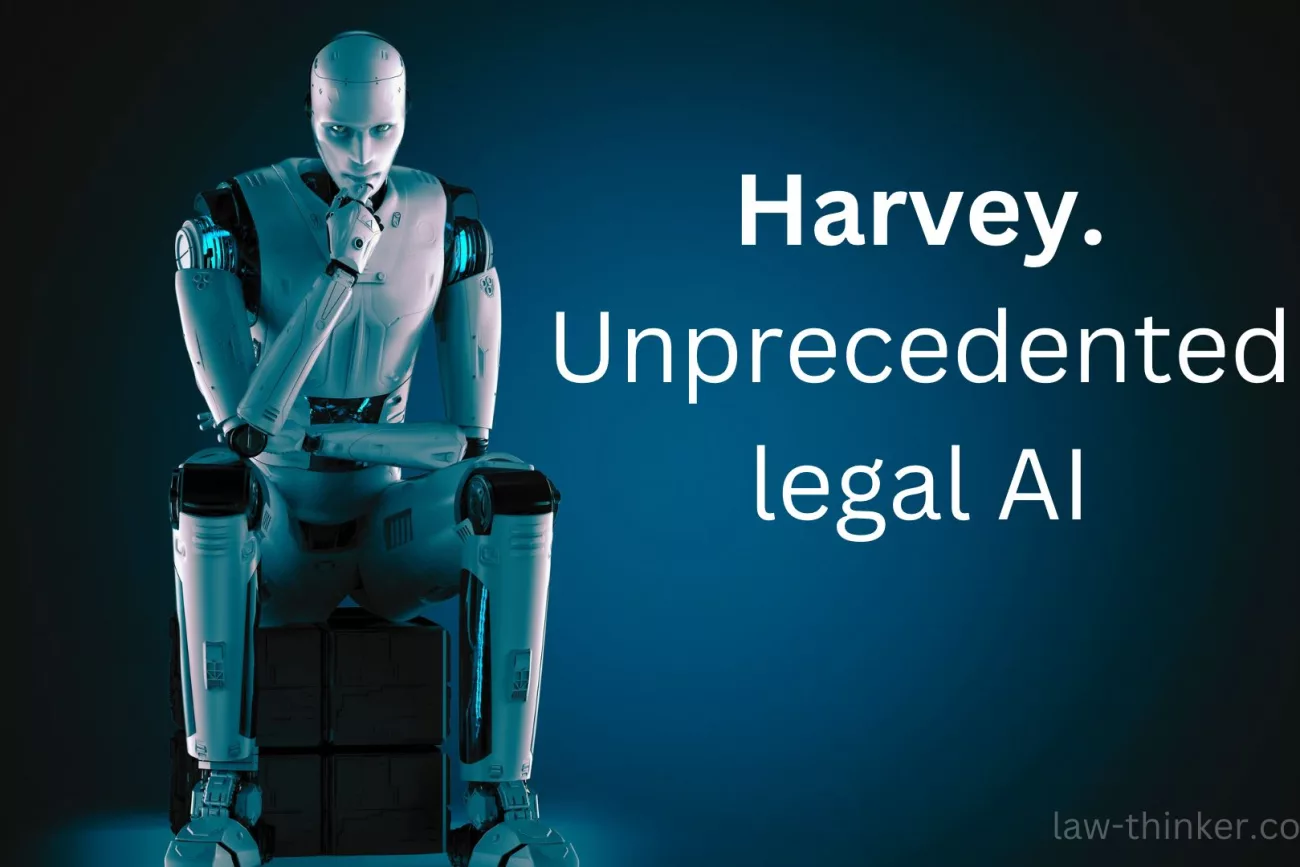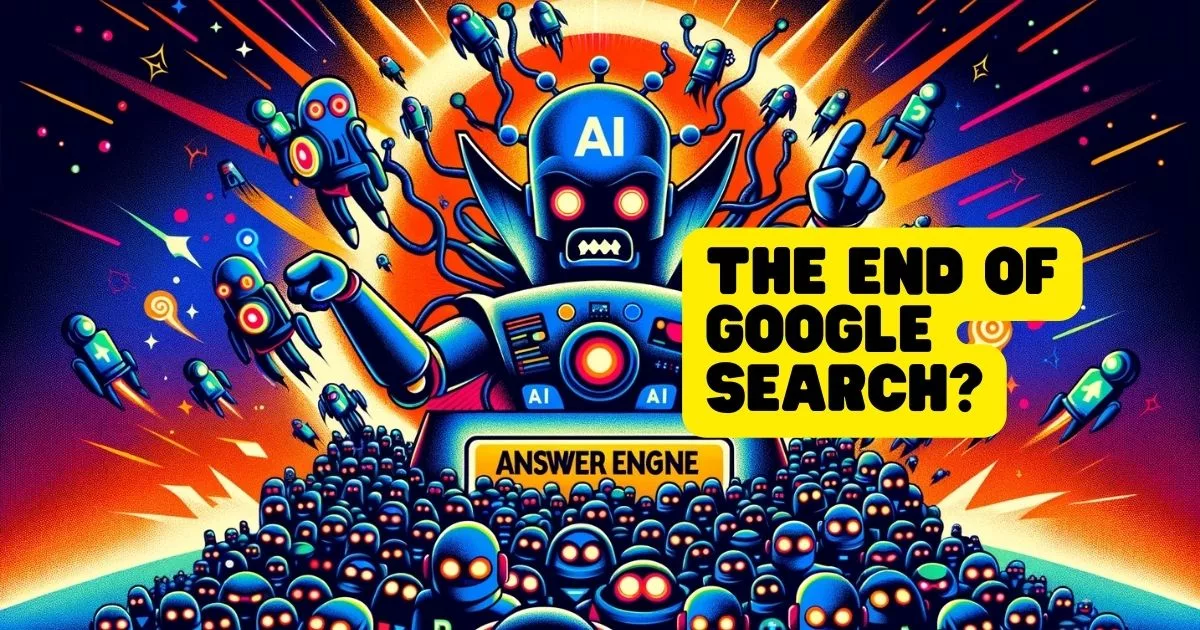
Key Points:
- Generative legal AI Harvey raises $21 million in Series A, revolutionizing legal research, contract management, and litigation.
- AI offers efficiency, accuracy, and customization in legal research; risk mitigation, standardization, and collaboration in contract management.
- The funding signifies growing interest in AI-powered legal solutions and will lead to market expansion and future developments.
- Ethical considerations like transparency, bias, and data privacy are crucial as AI becomes more prevalent in the legal industry.
In an unprecedented move, generative legal AI Harvey has raised a mind-blowing $21 million in Series A funding, propelling the legal industry into the future. This extraordinary technology is revolutionizing the way legal professionals work by streamlining processes, creating efficiency, and offering new possibilities that you simply have to see to believe. Get ready to be amazed by how Harvey is reshaping the legal landscape.
Legal Research and Analysis: A Paradigm Shift Like No Other
Generative legal AI Harvey has made a groundbreaking impact on legal research and analysis. With its unparalleled ability to process vast amounts of data, case law, and legislation at lightning-fast speeds, this AI-powered platform provides legal professionals with accurate and relevant information, empowering them to make better-informed decisions.
Real-World Examples That Prove the Power of AI in Legal Research
- The ROSS Intelligence AI: The legal research platform ROSS uses AI to analyze case law and statutory provisions, helping lawyers find relevant information faster and more efficiently than ever before.
- Luminance: This AI-powered platform streamlines the due diligence process by quickly analyzing large volumes of data, enabling legal professionals to uncover crucial information and identify potential risks.
Benefits of AI in Legal Research
- Efficiency: Harvey accelerates the research process, saving time and resources.
- Example: Law firms using AI-based legal research platforms can save up to 30% of their research time.
- Accuracy: The AI can analyze and cross-reference data from multiple sources to ensure that the information provided is accurate and up-to-date.
- Example: ROSS Intelligence claims that its AI can help reduce the chances of missing relevant cases by up to 50%.
- Customization: The platform can be tailored to specific legal domains, making it highly relevant and useful for practitioners in various fields.
- Example: Luminance can be customized for different practice areas, such as M&A, litigation, and regulatory compliance.
Contract Management and Document Review: Experience Unprecedented Efficiency
Generative legal AI Harvey has also made a significant impact on contract management and document review. The AI can swiftly analyze contracts and legal documents, identifying potential issues and suggesting amendments. This drastically reduces the time it takes to review and finalize contracts, leading to more efficient and cost-effective legal operations.
Real-World Examples Showcasing the Potential of AI in Contract Management
- Kira Systems: Kira’s AI technology can review and analyze contracts up to 90% faster than manual methods, helping law firms save time and reduce costs.
- LawGeex: LawGeex’s AI-powered platform streamlines contract review by automating the identification of key clauses, cutting review time by an average of 50%.
Advantages of AI in Contract Management
- Risk Mitigation: The AI can spot potential issues in contracts and suggest amendments, reducing the likelihood of disputes and litigation.
- Example: JPMorgan Chase & Co. used AI to review thousands of commercial loan agreements, reducing the risk of potential disputes and saving an estimated 360,000 hours of work annually.
- Standardization: The platform can help create standardized templates, making the drafting process more efficient and consistent.
- Example: IBM Watson assisted a major law firm in creating standard contract templates, resulting in a more streamlined and efficient contract drafting process.
- Collaboration: Harvey allows multiple users to work on a document simultaneously, streamlining the review process and fostering collaboration.
- Example: Avvoka, a contract automation platform, enables users to collaborate in real-time, allowing legal teams to finalize documents more efficiently.
The Far-Reaching Implications of Harvey’s Series A Funding
The jaw-dropping $21 million Series A funding is a monumental achievement for Harvey and the legal technology industry as a whole. The investment signifies the growing interest in AI-powered legal solutions and underscores the incredible potential of this technology to revolutionize the legal landscape.
The Profound Impact on the Legal Profession
The widespread adoption of AI in the legal industry, as demonstrated by Harvey’s success, will inevitably have a profound impact on the legal profession. Legal professionals must adapt to working alongside AI, focusing on tasks that require human judgment and empathy, while allowing AI-powered systems to handle more routine tasks.
Market Expansion and Future Developments
With this substantial funding, Harvey plans to expand its market reach and continue developing its AI capabilities. The expansion will likely include exploring new legal domains, enhancing existing features, and developing innovative solutions to address the evolving needs of the legal profession.
How AI is Reshaping the Litigation Landscape
The impact of AI on litigation is substantial, as it has the potential to change the way legal professionals approach cases, analyze data, and strategize. Here are some examples of how AI is transforming the litigation landscape:
- Predictive Analytics: AI-powered predictive analytics can help lawyers forecast the likelihood of success in a case, enabling them to make more informed decisions about whether to pursue litigation or settle.
- Example: Premonition is an AI-driven platform that analyzes the success rates of attorneys and helps law firms make data-driven decisions on case strategy.
- E-Discovery: AI can streamline the e-discovery process by quickly and accurately identifying relevant documents, significantly reducing the time and effort involved.
- Example: Relativity uses AI to automate the document review process in e-discovery, allowing legal teams to find pertinent information more efficiently.
The Ethical Considerations Surrounding AI in the Legal Industry
As AI becomes more prevalent in the legal industry, ethical considerations are increasingly important. The legal profession must address these concerns to ensure the responsible use of AI and maintain public trust.
- Transparency: AI systems must be transparent in their operation and decision-making processes, enabling legal professionals to understand and explain their AI’s recommendations.
- Bias: Efforts must be made to minimize biases in AI systems, ensuring that the technology is fair and impartial.
- Data Privacy: AI systems must prioritize data privacy and security, protecting sensitive client information and maintaining attorney-client confidentiality.
AI’s Unstoppable Ascendancy in the Legal Industry
The remarkable $21 million Series A funding for generative legal AI Harvey marks a turning point in the legal industry. The groundbreaking technology is set to transform legal research, contract management, document review, and litigation, changing the way legal professionals work and creating a more efficient, streamlined legal ecosystem.
As the legal industry continues to embrace AI-powered solutions, it is crucial for legal professionals to adapt and leverage the power of AI to enhance their practice and deliver better outcomes for their clients. In addition, addressing ethical considerations and ensuring responsible use of AI will be key to maintaining public trust in the legal profession.
With its incredible potential and the recent influx of funding, Harvey is poised to lead the charge in revolutionizing the legal industry, offering unprecedented opportunities for growth, efficiency, and innovation. Legal professionals must prepare themselves for the extraordinary changes ahead, as AI continues its unstoppable ascendancy in the legal world.
Additional Resources
For those interested in learning more about AI in the legal industry and the latest developments, the following resources provide valuable insights and information:
- Artificial Lawyer: A leading news source for legal AI, offering articles, interviews, and analysis of the latest innovations in legal technology.
- LegalTech News: A comprehensive news source covering legal technology, including AI, e-discovery, and cybersecurity.
- Stanford Law School CodeX: A research center at Stanford Law School dedicated to exploring the intersection of technology and law, with a focus on legal informatics and AI.
Upcoming Events and Conferences
For legal professionals looking to stay up-to-date on the latest trends and innovations in AI and legal technology, attending events and conferences can be an excellent opportunity to learn and network. Here are some upcoming events to consider:
- Legalweek: An annual event that brings together legal professionals from around the world to discuss the latest developments in legal technology, including AI, e-discovery, and cybersecurity.
- ILTACON: The International Legal Technology Association’s annual conference, featuring educational sessions, panel discussions, and networking opportunities focused on legal technology and innovation.
- TechLaw.Fest: An international legal technology conference that explores the latest trends and innovations in legal technology, with a focus on AI, blockchain, and data privacy.
In conclusion, the legal industry is on the cusp of a monumental shift, driven by the incredible advancements in AI and the pioneering efforts of generative legal AI Harvey. As the industry adapts to these changes, legal professionals must embrace the potential of AI and stay ahead of the curve, ensuring they can continue to provide exceptional service and outcomes for their clients in an ever-evolving landscape














